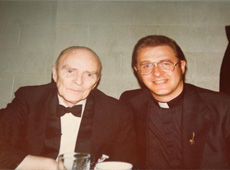Guildford Four’s Armstrong lays bare experience of prison and its aftermath
Posted By: April 13, 2017
Suzanne McGonagle. Irish News. Belfast. Thursday, April 13, 2017
ONE of the Guildford Four has described his struggles following his release from prison – and how he has come out the other side.
Wrongly convicted and imprisoned for 15 years, Paddy Armstrong was one of four people jailed for the Guildford pub bombing in England in 1975.
Almost 30 years after his release, the Belfast-born man has relived his ordeal in a book, Life After Life, saying “we can’t let people forget because there are still injustices in the world today.”
Mr. Armstrong said the book, ghostwritten by journalist Mary-Elaine Tynan, “lays bare the experiences of those years and their aftermath.”
“It took a year and a half to get this out of me, but I’m glad I’ve done it,” he told The Irish News.
“My son and daughter had begun asking questions about what had happened to me, and I found it difficult to answer.
“I live for my family, and I want people to see I’ve come out the other side – that there is life after life.”
Mr. Armstrong was jailed for life alongside Gerry Conlon, Paul Hill and Carole Richardson in what was widely regarded as one of the UK’s worst miscarriages of justice.
Their convictions for murdering five people in two IRA pub bombings in 1974 were finally quashed by the Court of Appeal in 1989.
Recalling the dark period of his life, Mr. Armstrong said: “I didn’t have a clue what was going on when I was first arrested.
“They asked me the same questions over and over again. One of the police said, ‘We know you didn’t do it, but we’re going to do you for it.’ When we were told we would serve 35 years, I thought I’d never see the outside world again.
“But that time came, and when I got out I lived with my solicitor Alistair Logan for nine months – he saved me as I didn’t know anything about the outside.
“I remember the first night I stayed in his house I ended up putting the mattress on the floor as I wasn’t used to sleeping on a bed.
“That following morning, Alistair said to me ‘I heard you moving about a lot in your room, ’ and I said I still had in my head the warders were coming into my cell.
“He got two doctors to treat me – ones that help soldiers who came from war, and I think that helped get my head together. They helped me adjust to life outside again.
“It was very hard, nd there were times I wanted to be back in prison because at least I knew the structure there.”
Asked if his ordeal had made him bitter, Mr Armstrong said: “I’ve no bitterness at all, I’m not that type of guy.
“I’m angry with the police. I always get asked ‘you must hate so many people’ but what’s the point?”
On why he was publishing his memoirs now, he said: “I didn’t just want the book to be about my time in prison but also about my life since I got out, and how difficult it was in those early days.
“I needed to do it for my children and the people of their generation – people who don’t know our story. Gerry Conlon and Carole Richardson are gone now, but I’m still here. And so is Paul Hill.
“And we can’t let people forget because there are still injustices in the world today.”










